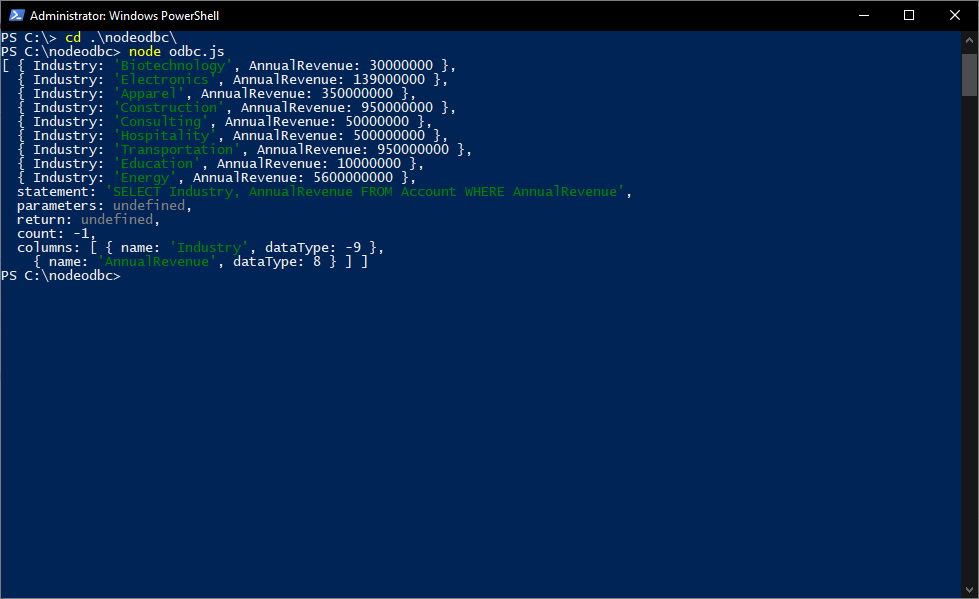Discover how a bimodal integration strategy can address the major data management challenges facing your organization today.
Get the Report →Query FTP Data through ODBC in Node.js
Use node-odbc to execute SQL queries against FTP data from Node.js.
Node.js is a JavaScript runtime environment that allows you to run JavaScript code outside of a browser. With the CData ODBC Driver for FTP, you can access live FTP data from Node.js apps and scripts. In this article, we walk through installing node-odbc and the required tools to create a simple Node.js app with access to live FTP data.
With built-in optimized data processing, the CData ODBC Driver offers unmatched performance for interacting with live FTP data in Node.js. When you issue complex SQL queries from Node.js to FTP, the driver pushes supported SQL operations, like filters and aggregations, directly to FTP and utilizes the embedded SQL engine to process unsupported operations client-side (often SQL functions and JOIN operations).
Connecting to FTP Data
If you have not already done so, provide values for the required connection properties in the data source name (DSN). You can use the built-in Microsoft ODBC Data Source Administrator to configure the DSN. This is also the last step of the driver installation. See the "Getting Started" chapter in the help documentation for a guide to using the Microsoft ODBC Data Source Administrator to create and configure a DSN.
To connect to FTP or SFTP servers, specify at least RemoteHost and FileProtocol. Specify the port with RemotePort.
Set User and Password to perform Basic authentication. Set SSHAuthMode to use SSH authentication. See the Getting Started section of the data provider help documentation for more information on authenticating via SSH.
Set SSLMode and SSLServerCert to secure connections with SSL.
The data provider lists the tables based on the available folders in your FTP server. Set the following connection properties to control the relational view of the file system:
- RemotePath: Set this to the current working directory.
- TableDepth: Set this to control the depth of folders to list as views.
- FileRetrievalDepth: Set this to retrieve and list files recursively from the root table.
Stored Procedures are available to download files, upload files, and send protocol commands. See the Data Model chapter of the FTP data provider documentation for more information.
Building node-odbc
In order to connect to FTP through the CData ODBC Driver, you need to build node-odbc manually (after installing the required tools).
Installing the Required Tools
The following commands install the tools required to build node-odbc (note the -g parameter, which installs the tools globally).
npm i -g windows-build-tools npm i -g node-gyp
Building node-odbc
After installing the required tools, create a directory for the Node.js app and install odbc (which builds the binary for us to use in our Node.js script).
mkdir nodeodbc cd nodeodbc npm i -g node
Querying FTP from Node.js
With the ODBC Driver installed, a DSN Configured, and node-odbc built, we are ready to query live FTP data from a Node.js app. The sample code below connects to a specific DSN and queries the MyDirectory table.
myscript.js
const odbc = require('odbc');
async function queryFTP() {
const connection = await odbc.connect(`DSN=CData FTP Source`);
const data = await connection.query('SELECT Filesize, Filename FROM MyDirectory');
console.log(data);
}
queryFTP();
Once you write the app, use node to execute the script:
node myscript.js

Download a free, 30-day trial of the CData ODBC Driver for FTP and start working with your live FTP data in Node.js. Reach out to our Support Team if you have any questions.






